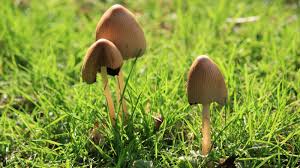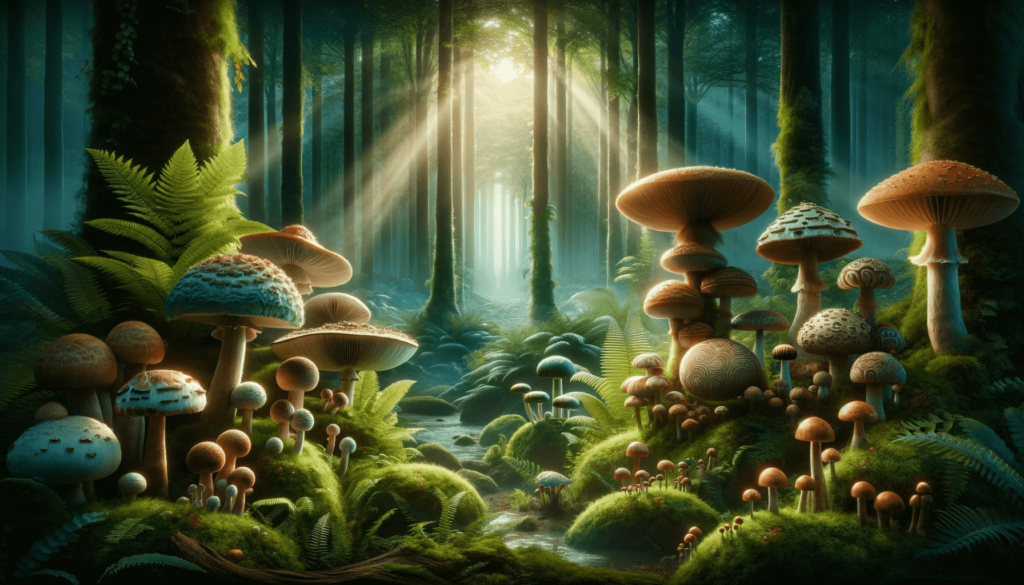Introduction
Magic mushrooms, also known as psilocybin mushrooms, have been a subject of fascination and controversy for decades. Historically used in religious and spiritual rituals, these fungi have recently garnered attention in the scientific community for their potential therapeutic effects on the brain. This blog delves into the complex ways in which magic mushrooms interact with our neural pathways, shedding light on both their mystical allure and their promising role in modern medicine.
Historical Context
Long before their introduction to Western science, magic mushrooms were integral to the religious and spiritual practices of indigenous peoples. In Mesoamerica, for instance, these mushrooms were revered for their ability to induce altered states of consciousness, connecting individuals with the spiritual world. Understanding this historical context is crucial for appreciating both the cultural significance and the contemporary scientific interest in these fungi.
The Science of Psilocybin
Psilocybin, the active compound in magic mushrooms, is a psychedelic substance that induces alterations in perception, mood, and cognitive processes. When ingested, psilocybin is converted into psilocin, which then interacts with serotonin receptors in the brain, particularly the 5-HT2A receptors. This interaction is believed to be responsible for most of the psychedelic effects experienced during a “trip.”
Effects on the Brain

Magic mushrooms, primarily known for their active compound psilocybin, have profound effects on the brain that are both fascinating and complex. These effects can be broadly categorized into perceptual changes, emotional effects, cognitive impacts, and potential long-term changes in brain function.
Perceptual Changes
- Altered Sensory Experiences: One of the most immediate and noticeable effects of psilocybin is on perception. Users often report enhanced colors, vivid visual patterns, and altered auditory sensations. These changes can range from subtle enhancements to intense hallucinations.
- Distorted Sense of Time: Many users experience a distortion in their perception of time, with moments feeling elongated or time seeming to stand still.
Emotional Effects
- Mood Enhancement or Euphoria: Psilocybin can induce states of euphoria and profound emotional well-being. This is often accompanied by a sense of connectedness or unity with others and the environment.
- Emotional Intensity and Volatility: While some experiences can be positive, psilocybin can also intensify negative emotions, leading to experiences of anxiety, fear, or paranoia, particularly at high doses or in uncomfortable settings.
Cognitive Impacts
- Altered Thought Patterns: Users often report changes in their thought processes, including enhanced creativity, fluidity of thought, and the breakdown of normal associative patterns. This can lead to insightful experiences but can also cause disorganized thinking.
- Spiritual or Mystical Experiences: High doses of psilocybin can induce profound mystical or spiritual experiences, often described as life-changing. These experiences can include a sense of transcendence, dissolution of ego, or feeling of oneness with the universe.
Potential Long-Term Changes
- Neuroplasticity: Recent research suggests that psilocybin may enhance neuroplasticity — the brain’s ability to form new neural connections. This could have therapeutic implications, particularly in the treatment of depression and post-traumatic stress disorder (PTSD).
- Potential Therapeutic Benefits: Studies indicate that psilocybin may be beneficial in treating various mental health conditions, including depression, anxiety, and addiction. The therapeutic effects are thought to arise from both the acute psychedelic experience and longer-term changes in brain function.
- Changes in Personality and Outlook: Some research suggests that experiences with psilocybin can lead to long-term changes in personality traits, particularly increased openness, and changes in life perspective or values.
Safety and Risks
It’s important to note that while there are potential therapeutic benefits, psilocybin can also pose risks, particularly for individuals with a personal or family history of psychosis. The setting and mindset during use, often referred to as “set and setting,” play a crucial role in influencing the nature of the experience
Therapeutic Potential
Recent studies have explored psilocybin’s potential in treating various mental health issues:
- Depression: Research indicates that psilocybin can have rapid and sustained antidepressant effects.
- Anxiety and PTSD: Early results show promise in reducing symptoms of anxiety, particularly in terminal illness.
- Addiction: There’s emerging evidence that psilocybin therapy can aid in treating substance abuse disorders.
Neuroplasticity and Growth
One of the most intriguing aspects of psilocybin research is its impact on neuroplasticity. Studies suggest that psilocybin may promote the growth of neural connections, potentially rewiring the brain in ways that could be therapeutic for conditions like depression and PTSD.
Risks and Considerations
While the potential benefits are significant, it’s essential to acknowledge the risks:
- Psychological Distress: In some cases, psilocybin can induce intense anxiety or unsettling experiences, often referred to as “bad trips.”
- Contraindications: Individuals with a history of psychosis or schizophrenia may be at increased risk of adverse reactions.
Legal and Ethical Considerations
The legal status of magic mushrooms varies globally, with most countries classifying them as controlled substances. However, there’s a growing movement advocating for their medical use, raising important ethical and legal questions.
The Future of Psilocybin Research
The resurgence of interest in the therapeutic potential of psilocybin is a promising development. Ongoing research aims to better understand its mechanisms, optimize its therapeutic use, and explore its potential in treating a variety of mental health conditions.
Conclusion
Magic mushrooms, once relegated to the fringes of cultural practices and recreational use, are now at the forefront of neuropsychiatric research. Their ability to alter brain function and structure presents both exciting therapeutic possibilities and challenges. As research continues, it is crucial to approach this field with both scientific rigor and an appreciation for the complex cultural history of these remarkable fungi.

